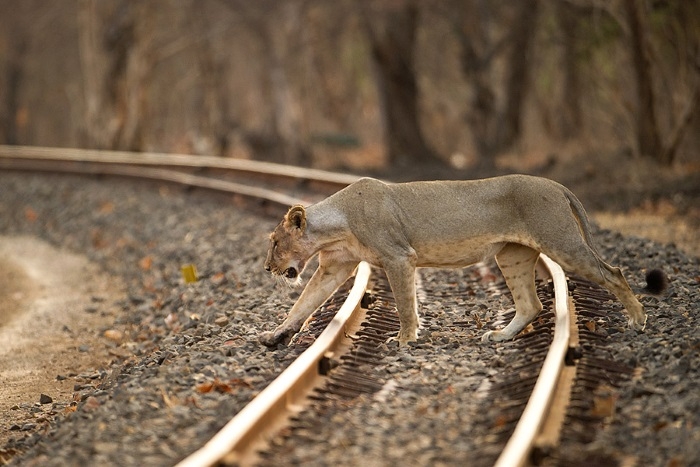Pioneering step! New Technology to avoid wildlife collision in RTR
Total Views |
Rishikesh, Aug. 19: Loss of Wildlife due to train crash is one of the most important reasons for the loss. Indian Railways now will be installing seismic sensors and thermal cameras on Railway tracks around the 18-km Kansro range in the Rajaji Tiger Reserve (RTR) in Uttarakhand to warn train drivers.

This is an initial project in India which will help to prevent trains from hitting animals in the region.
This advanced detection system will be installed along tracks passing through the reserve's 18-km Kansro range, where over two dozen animals, mostly elephants; have been killed by trains in the last three decades.
Rajaji Tiger Reserve (RTR) Director PK Patra said, “Ten seismic sensors and thermal cameras will be installed along the tracks at six points in the range, the system will detect the slightest movement of elephants and intimate officials at the central server facility”.
The director said, data from the system will be analyzed at the facility and after confirming the presence of an elephant in the range, it will generate alerts for patrolling staff, the RTR administration, the train's loco pilot and the nearest railway station.
Besides the six points identified for the detection system, which will be 50 meters apart from each other, the 18-km stretch will have elephant proof barricading, The identification of these points was done on the basis of observation of frequency of elephant crossings, he said.
The system is economical and will help unburden patrolling staff and make monitoring of wildlife conservation at the reserve far more effective.
The installation of the system has become all the more necessary after electrification of the tracks passing through the range. Developed by Chandigarh-based Central Scientific Instrumentation Research Organisation, the pilot project of the system at RTR is being launched in collaboration with the Union Forest Ministry, Wildlife Institute of India and the WWF.